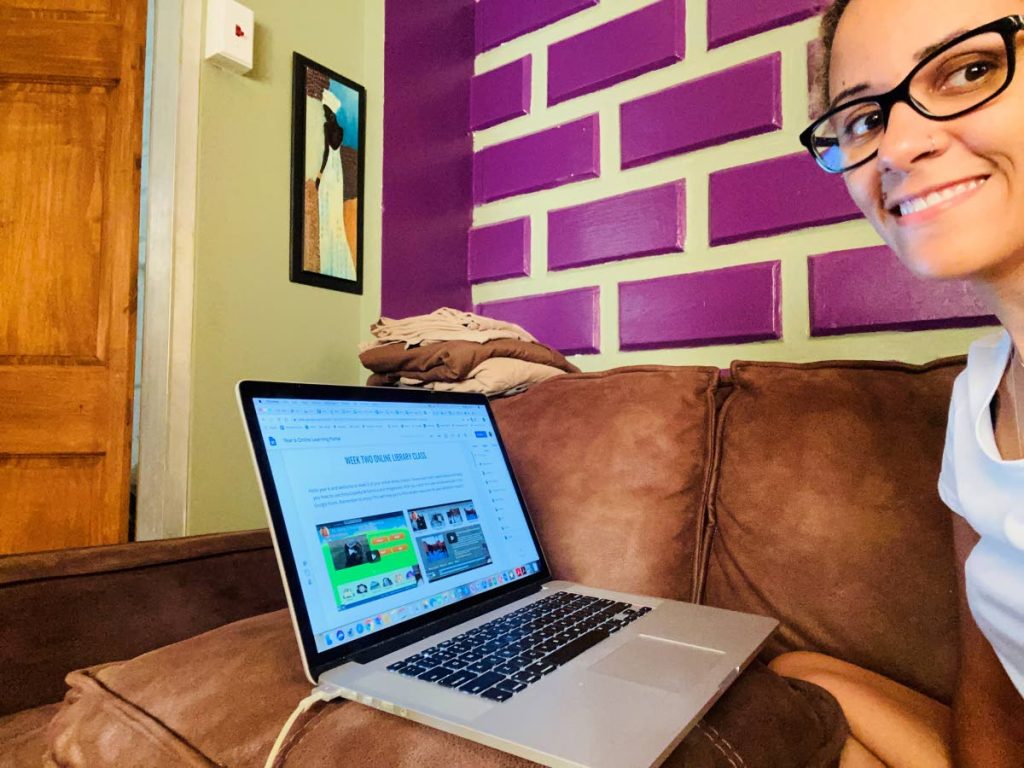Out of Africa: Trini's journey home amid pandemic

As countries around the world took drastic measures to close borders in a desperate attempt to shut out covid19, many Trinidadians living abroad struggled to return home. Ijanaya Jacob-Brown, who lives in Africa, tells the story of her journey home and her experiences in self-quarantine in a four-part series.
As covid19 spilled out of China and into the world, my colleagues and I left Sudan on March 13 and headed for Zanzibar for some relief from the political upheaval in Sudan, where I work as a librarian in an international school in Khartoum.
In Sudan, our news is geared towards Africa, where there were only a few cases of the virus and little talk of what was going on in China. So no one expressed fear, and we had no idea of where the world was heading.
In Zanzibar, we rarely got internet access. We finally realised something was wrong when the French people began congregating. We asked, “What’s going on?” and someone said, “They’re trying to get hold of the French embassy because they are hearing that France’s borders are closing.”
We didn’t panic yet, but we began to understand what was going on in Europe. My plan was to get to Uganda to stay with friends.
Suddenly we couldn’t get visas so we booked tickets for Rwanda. The next day, our boss, who was in Rwanda, called us at 11 pm and said Rwanda was closing its borders. We needed to get there as soon as possible.
Then I found out Rwanda was closing borders at midnight on March 20 and my flight wasn’t arriving until March 21. I booked a ticket to arrive earlier – only to discover at the airport the online ticket I booked did not exist. The online systems were not able to keep up with the rapid changes.

I rebooked a return to Sudan and waited 15 hours. Kenya Airways said my flight was okay. At departure time, the airline said ten of us couldn’t get on the plane because we were not Sudanese citizens. A UN representative called the Sudanese ambassador, who was at the airport. He said he would vouch for us. But the airline refused to let us on the plane.
We couldn’t leave the airport.
I now realised there was nowhere in the world to go. I had to get home to Trinidad.
I would have to fly back to Uganda, then to the Central African Republic, Gabon, France and New York City.
In Africa, I only got off the plane in Bengui (the Central African Republic). I had no clue where that was. When landing there, I looked out of the plane and thought, this is not the good Africa. It was dry – not desert, but not lush – hot, humid, sticky and desolate.
All I could see were tiny UN planes. The only commercial plane around was ours, a Kenyan Airlines plane that let us off and took off like a bat out of hell.
In Bangui, we had to line up, have our temperatures taken, and be interviewed. They were very organised, and they made us keep a social distance apart.
In immigration, I tried to find someone to help me because everyone spoke French. I saw an Air France plane, and tried to explain I couldn’t miss that flight. A Bengui police officer in his late 30s, who spoke English, walked me through everything. He was a very kind man, who understood I was scared and confused. He took my passport and got all my stamps. He didn’t have to, but he did. I will never forget that kindness at a time when I realised the world was closing off for me. The place I feared turned out to be the kindest to me.
French military, local police and military surrounded our plane as we boarded. A man kept my boarding pass, and I got called back. I panicked. They had booked me on my Trinidadian passport, and they needed to change it to my US passport, because I was going to New York.
In Gabon we sat on the plane at the airport for three hours, and finally headed for Paris, where I waited ten hours for my next flight to New York.
Three hours from New York, I discovered TT was closing its borders and my 1.30 am flight on March 22 had been cancelled.
I had a panic attack. I went to wash my face; the bathroom was locked. I cried, and the Air France flight attendant tried to reassure me.
In New York, no one was at the Caribbean Airlines desk. I called the airline and cried on the phone when the person who answered said my flight had been cancelled.
Terrified, I said, “That can’t be true. I still have time. The airport closes tomorrow at midnight.”
I thought about going back to London to stay with relatives, but I was afraid of getting turned back. Things were changing by the minute. I could book a ticket now, and in a few minutes, governments would say “no non-nationals.”
I bought a ticket to Miami just to feel closer to Trinidad. The flight was leaving in eight minutes. My baggage had been lost, and that saved me – I could run through the airport.
The next day, in Miami, I got the Caribbean Airlines flight at 3 pm on March 22. For the first time in four days I felt a sense of relief, when I finally heard the flight attendant say, “Ladies and gentlemen, welcome to Trinidad.”
Now I knew I faced quarantine.

Comments
"Out of Africa: Trini’s journey home amid pandemic"